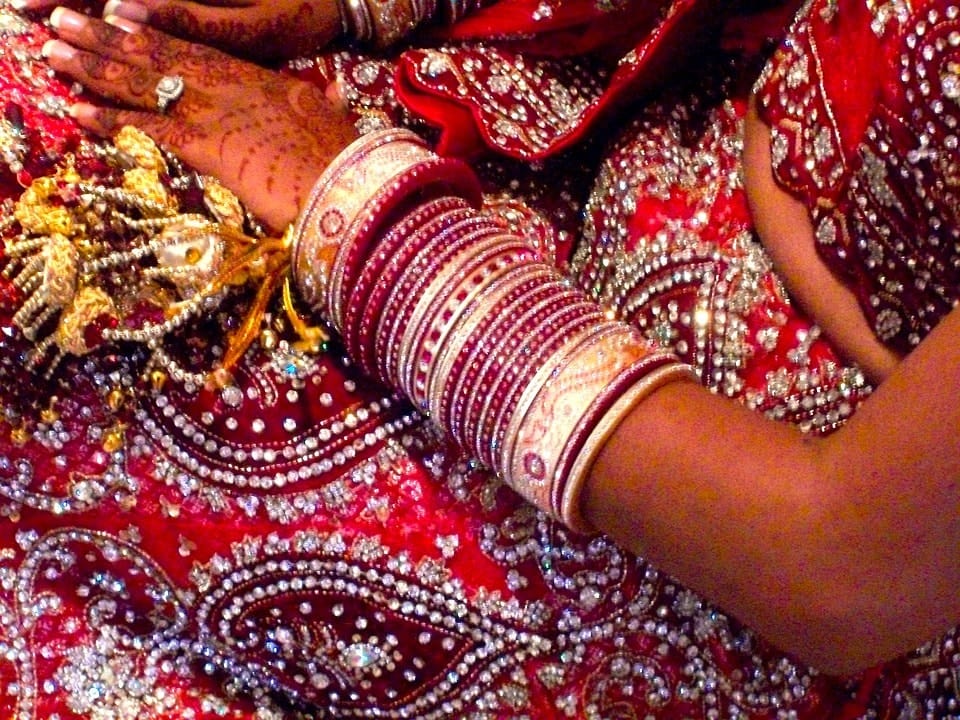
Legislation alone won't solve the problem of dowry abuse in Australia.
What's needed is a more robust examination of dowry abuse within the broader framework of domestic and family violence, and as it relates to economic abuse within this context.
Economic abuse has been recognised as a key form of family violence for more than a decade. There's a diversity of behaviours and tactics used by perpetrators, and as a first step dowry abuse needs to be recognised among them. Dowry abuse occurs within familial contexts, and as such the practice can be linked to other forms of abuse and coercion.
There's no way to quantify the practice of dowry in Australia, nor the extent to which dowry becomes leverage for abuse and coercion. It is occurring, though, and Australia is only beginning to consider how we respond to this in the midst of renewed commitments to ending all forms of violence against women.
A step forward
In February this year, the Legal and Constitutional Affairs References Committee presented its report from the inquiry into The Practice of Dowry and the Incidence of Dowry Abuse in Australia.
While there was no specific catalyst that sparked the inquiry, anecdotal reports that women across Australia were experiencing abuse connected to dowry, combined with strong advocacy in the House of Representatives, provided the impetus for the establishment of a senate inquiry on 26 June 2018.
The overall terms of reference for the inquiry were broad, which led to a wide exploration, culminating in more than 80 submissions and three public hearings. Submissions were received from a cross-section of civil society and government.
The inquiry set out to explore, among other things:
- the extent and nature of the practice
- the adequacy of the family law system
- links between dowry, dowry abuse and forced marriage, and
- human trafficking and slavery.
It did not, however, explicitly set out to define "dowry", which posed challenges to both the gathering and presentation of evidence.
The timing was significant, as amid the committee receiving written submissions and conducting public hearings across Australia, Victoria moved to implement Recommendation 156 of the Victorian Royal Commission into Family Violence to include dowry abuse as a statutory example of family violence within the Family Violence Protection Act (1998) (Vic).
As a consequence, the issue of how to conceptualise and respond to dowry abuse, as a form of financial abuse and as a form of gendered violence, has been foremost for many in the community.
In a joint submission drawing on research from across the Monash Gender and Family Violence Research Centre, Monash Migration and Inclusion Centre and the Centre for Gender, Peace and Security, concerns were noted regarding the slippage between “dowry abuse, arranged and forced marriage” and the absence of a clear definition of dowry abuse (given the many forms of payments that occur in the context of marriage, including dowry, dower, bride price, bride service).

All cultures have forms of monetary and other gift exchange, and two significant concerns arise from focusing on "dowry" in an isolated way.
First, the dilution of the significance of financial abuse in the context of family violence by demarcating dowry abuse as a separate form of abuse.
And, related to this, the focus on dowry abuse in a singular way, rather than recognising the way in which this form of abuse may be connected to other forms of family violence occurring simultaneously. Similar concerns were echoed across many of the submissions, and to some extent this was addressed in the final report.
The final report handed down by the senate committee detailed 12 recommendations.
These included a reasoned rejection regarding the criminalisation of the practice of dowry in its entirety (which was advocated in many submissions). The committee favoured an approach that recognises dowry abuse as economic abuse within the context of family violence.
Other key recommendations included the harmonisation of legislation relating to family violence across all states and territories (recommendation two). This, too, is a critical recommendation, as the current fragmented approach to legislation addressing family violence provides a number of gaps and challenges for those experiencing family violence, but also for service providers.
Further, the committee recommended that states and territories strengthen the governance of data collection practices and standards, by “implementing a system to capture and measure the extent and incidence of all forms of family violence in Australia, including dowry abuse as a form of economic abuse” (recommendation nine).
In our review of the submissions and the final report, what stands out is the absence of robust empirical data.
A concern in this area is the reliance on narratives of abuse and victimisation that provoke emotive responses, but which alone should not directly inform our response.
Rather than demonising specific cultures and/or practices such as dowry, it's the broader context within which perpetrators of family violence leverage control and coercion via financial abuse that must be well understood and the beginning point for our response (Ulbrich 2017).
In the week of International Women’s Day, most critical is to stand together to push for evidence-based reform, and research-led policy and law to realise change across all forms of violence against women.





